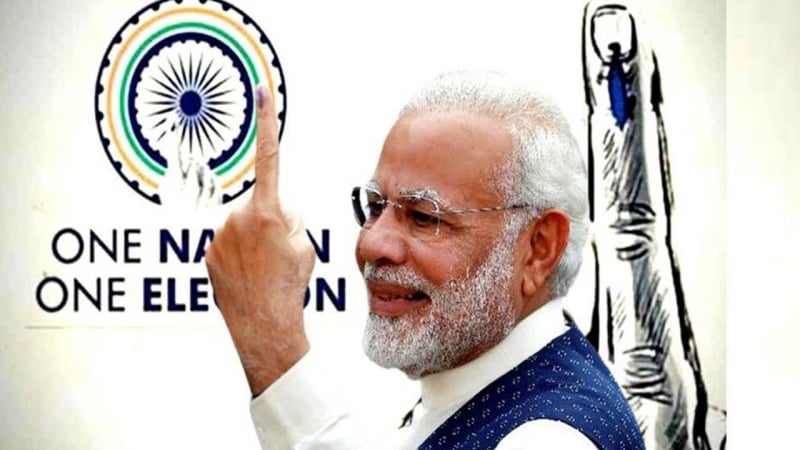
The Union Cabinet has approved One Country One Election. However, conducting elections across the country will not be easy not only for the government but also for the Election Commission.
The activities of One Nation One Election have started increasing again in India. Modi Cabinet has approved One Country One Election. A committee headed by former President Ram Nath Kovind had submitted the outline of recommendations for One Country, One Election to the Modi Cabinet, which has been given the green signal by Modi 3.0. However, there are many questions in the minds of the people regarding this. The path of One Country, One Election is not easy. There are many challenges in front of it.
The need for constitutional reform
To implement the concept of one country, one election, the Modi government will have to make many changes in the Constitution. This includes 18 constitutional amendments. However, the BJP does not have an absolute majority in the Lok Sabha. In such a situation, to implement one country, one election, the BJP may have to join hands with all its allies including some opposition parties.
Parliamentary committee will become an obstacle
Nitish Kumar's party JDU has already agreed to this decision of the Modi government. But Congress has refused to approve it. The government will have to send the One Country, One Election Bill to the Parliamentary Committee, where leaders of opposition parties will also be present. In such a situation, it may be difficult for the government to get the bill approved.
The central government will also have to get the support of the states
To implement One Country One Election, the central government will also have to gain the support of the states. In particular, the approval of half the states is required to conduct elections for panchayats and municipal corporations. In such a situation, the government will have to take the consent of 14 states to conduct local elections along with Lok Sabha and assembly elections.
The term of the assembly will be affected
If the One Country, One Election provision is implemented, it can have a direct impact on the legislative tenure of many states. Since elections are to be held in Delhi and Bihar next year. While the term of the assemblies of Assam, Kerala, Tamil Nadu and West Bengal will end in 2026. Apart from this, the assembly term of Goa, Gujarat, Manipur, Punjab, Uttar Pradesh and Uttarakhand will end in 2027. Assembly elections of all the states will be held again along with the Lok Sabha elections in 2029, due to which all these state assemblies will be dissolved in a few years and the new government will not be able to complete 5 terms. year
Difficulties will increase for the Election Commission!
Making One Nation One Election a success will not be easy even for the Election Commission. In a country with a population of 140 crores, conducting simultaneous elections in 28 states and 8 union territories will prove to be a difficult task. This will require a large number of EVMs and other resources including staff. It will be very difficult for the Election Commission to conduct voting and declare the results in all the Lok Sabha and Assembly seats of the country.
 look news india
look news india